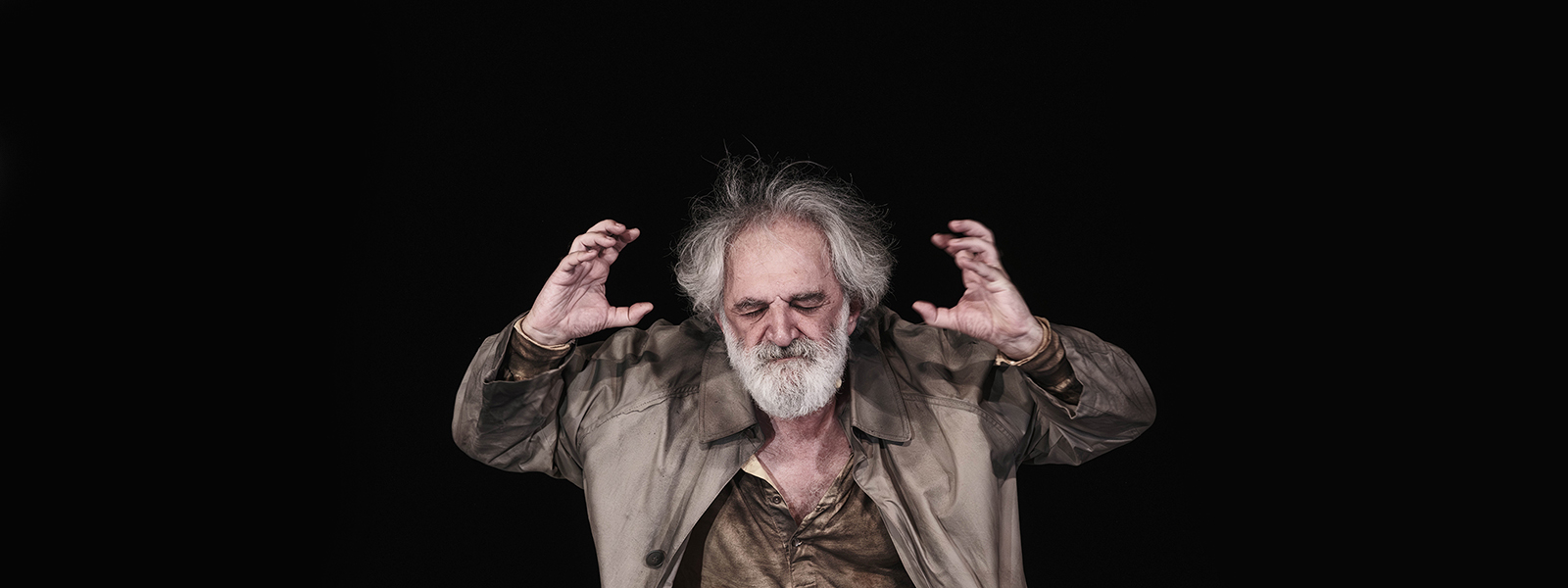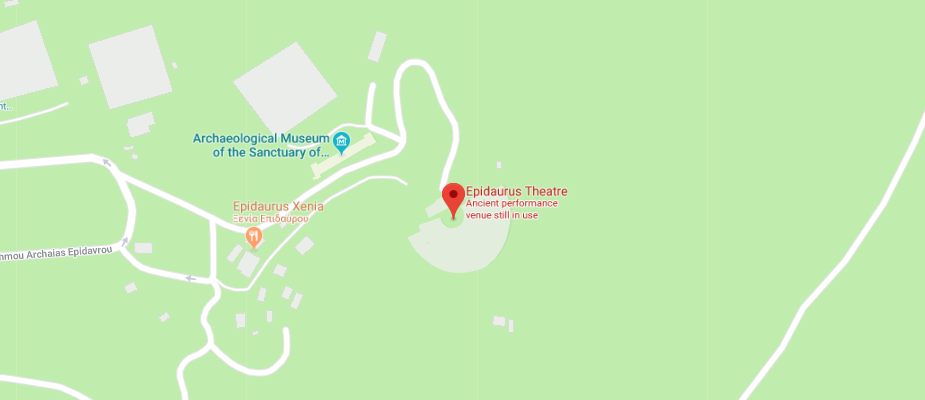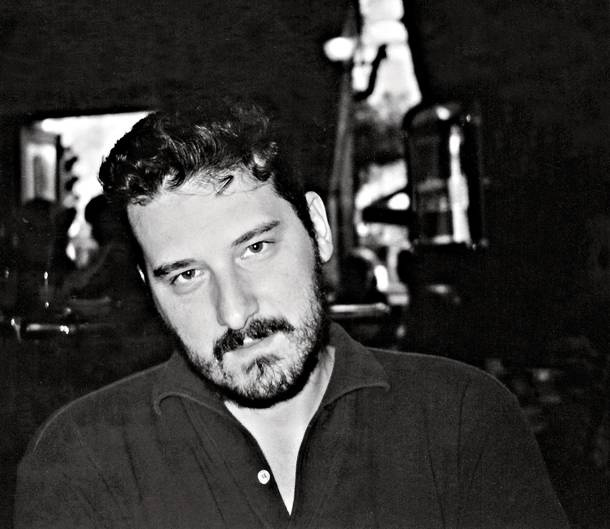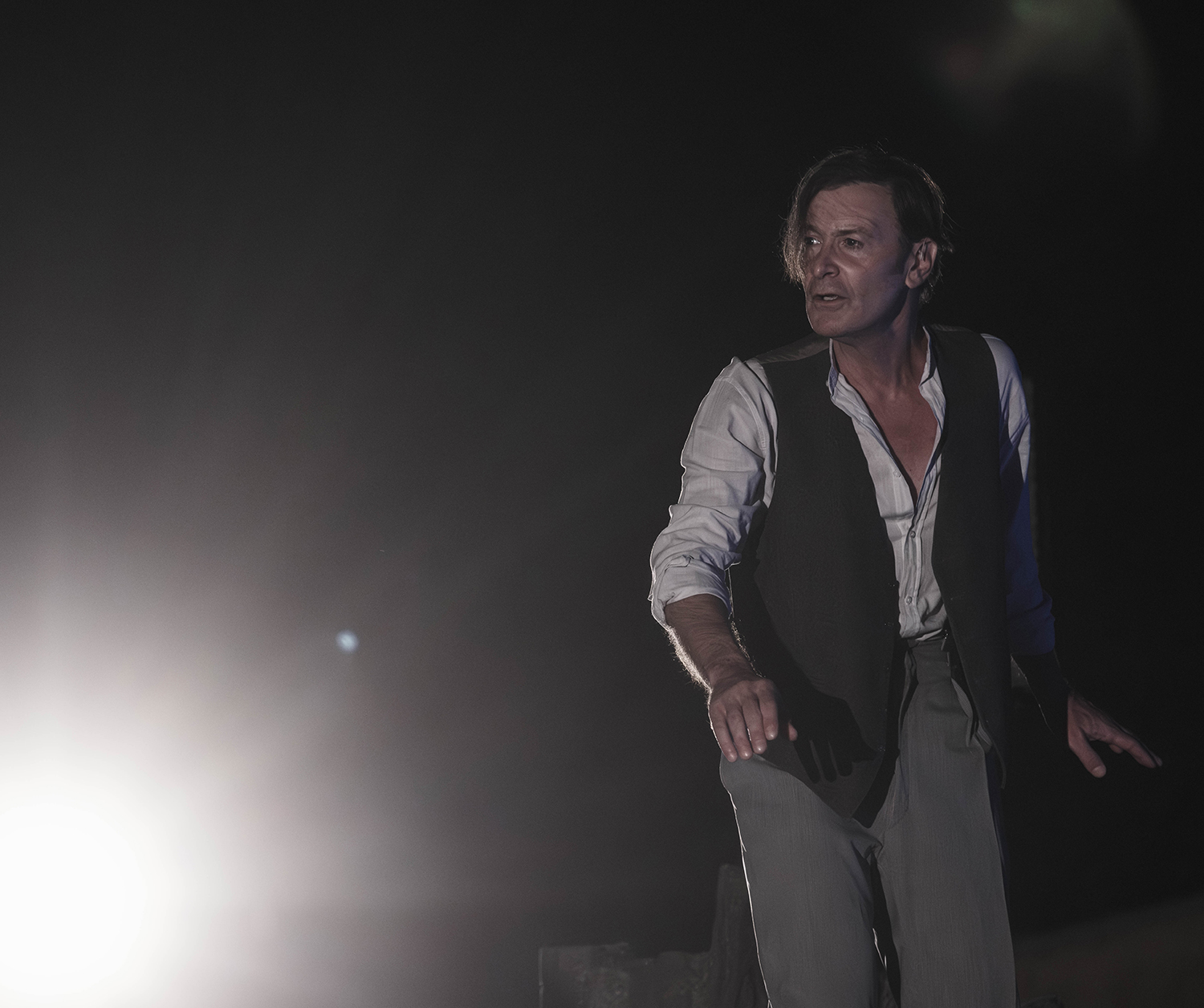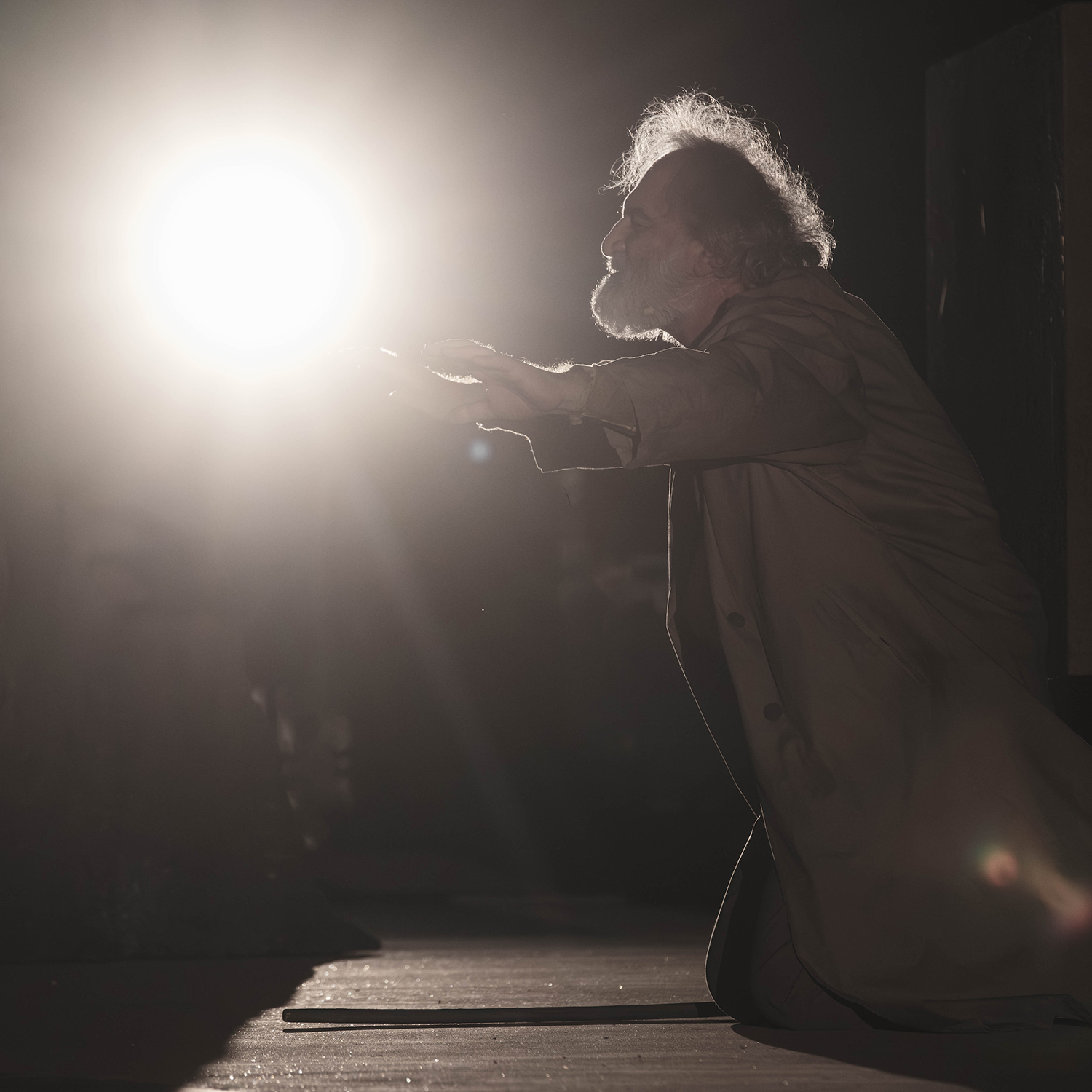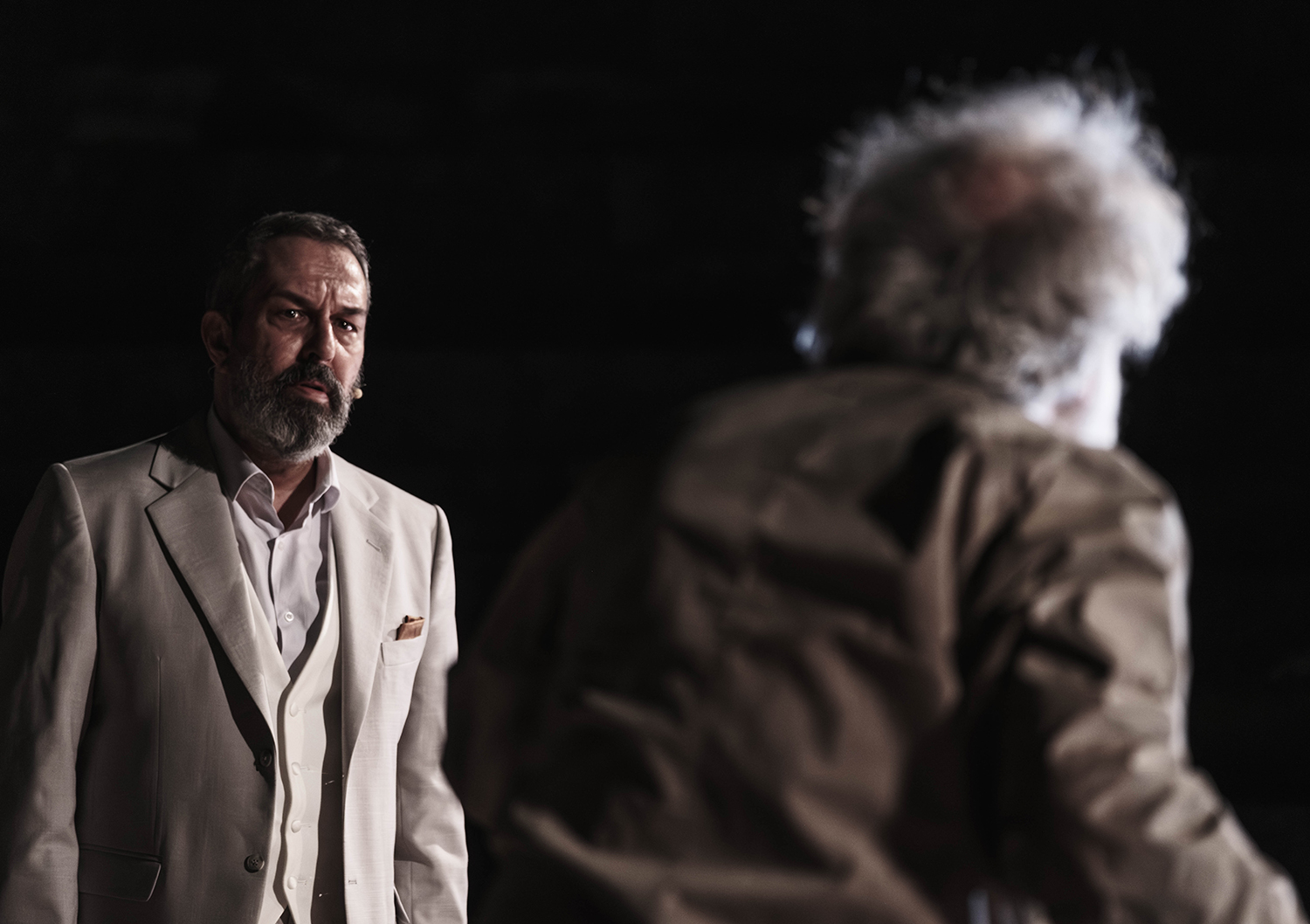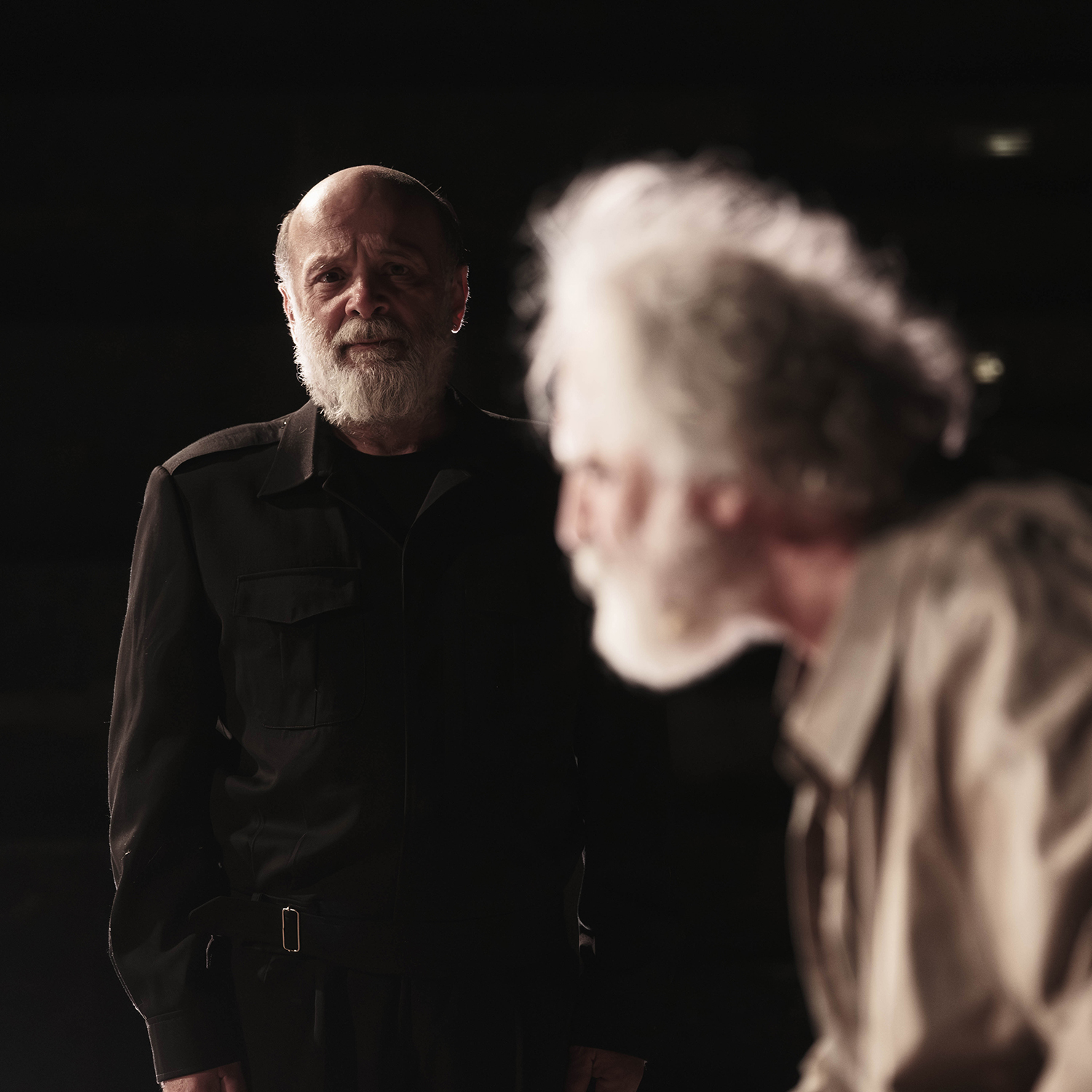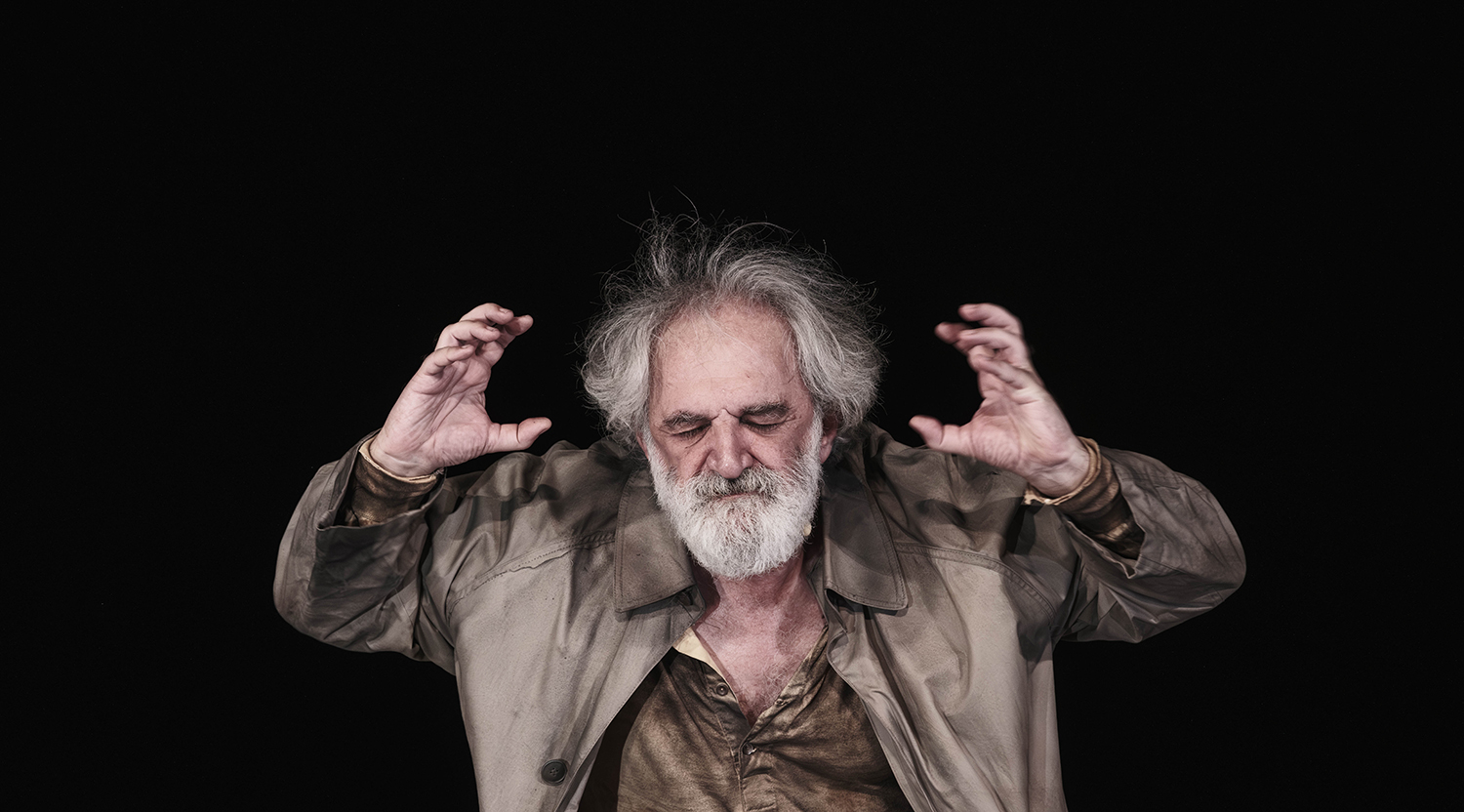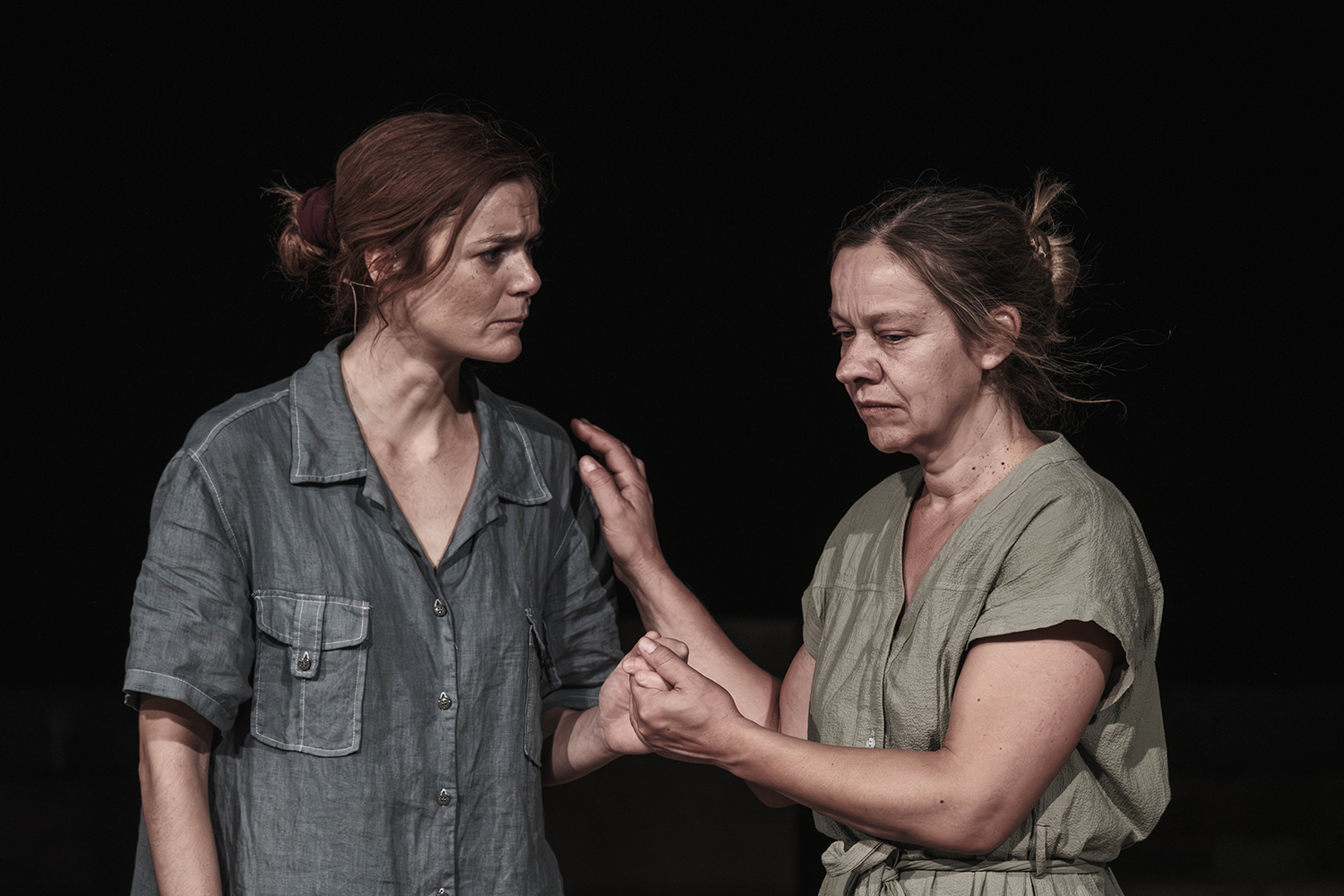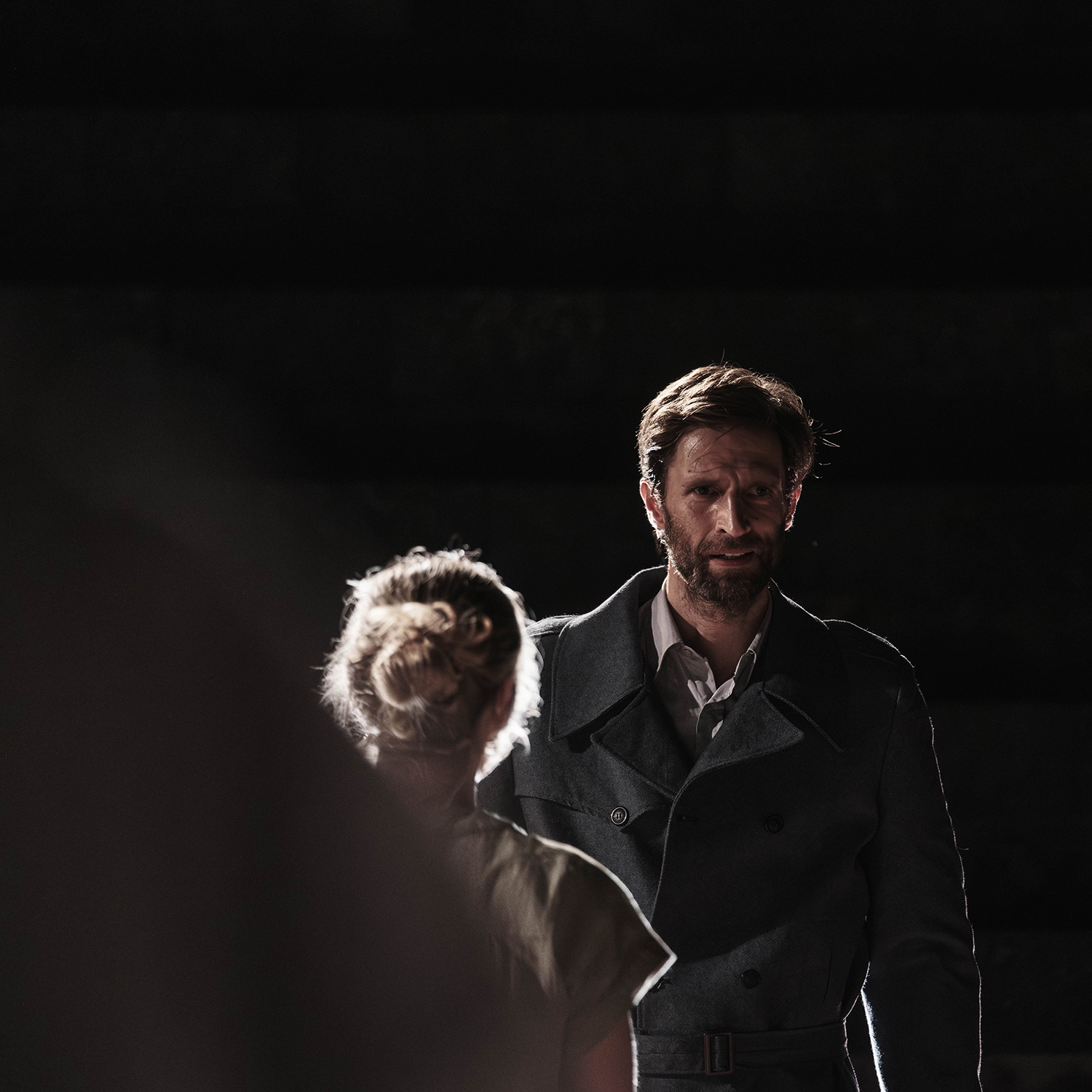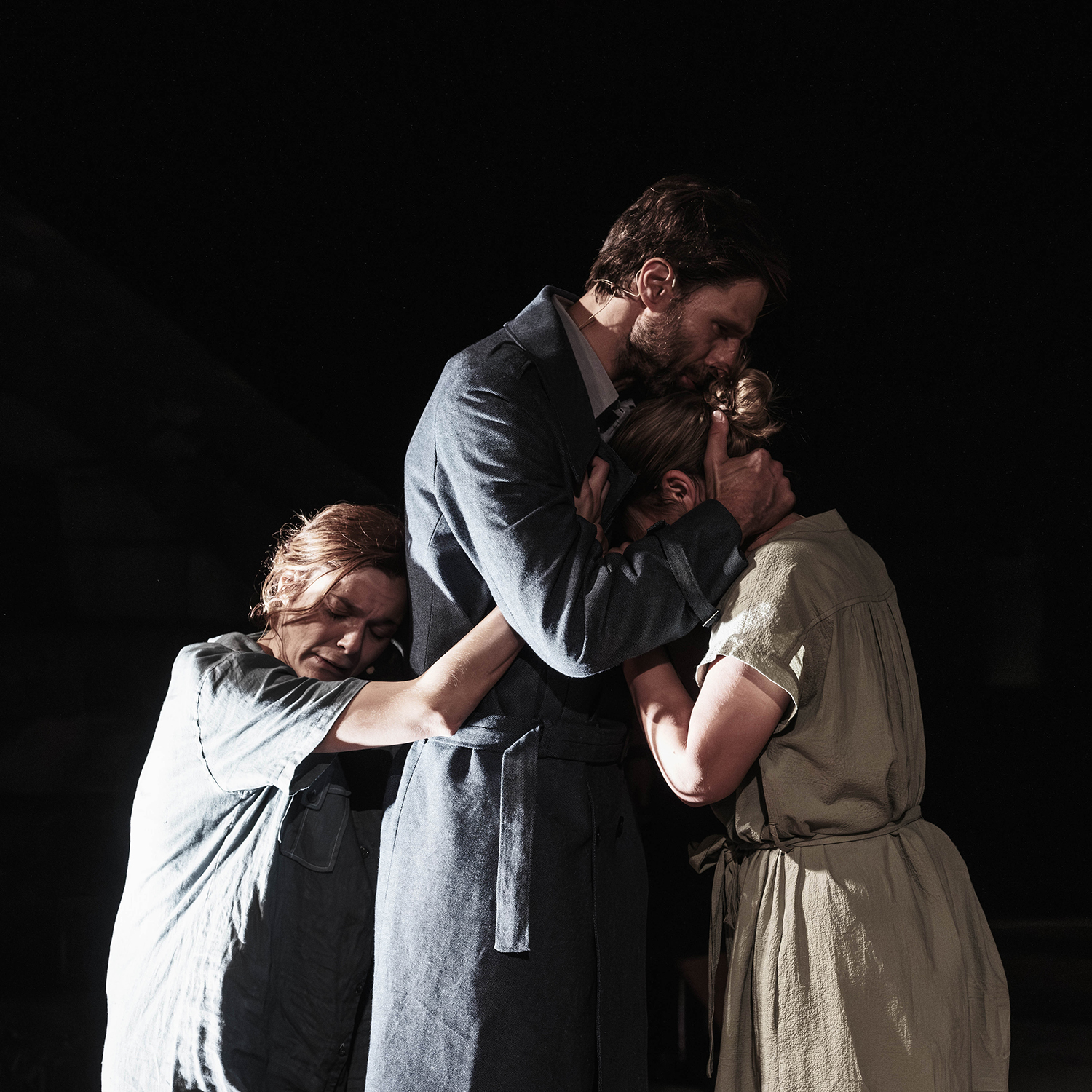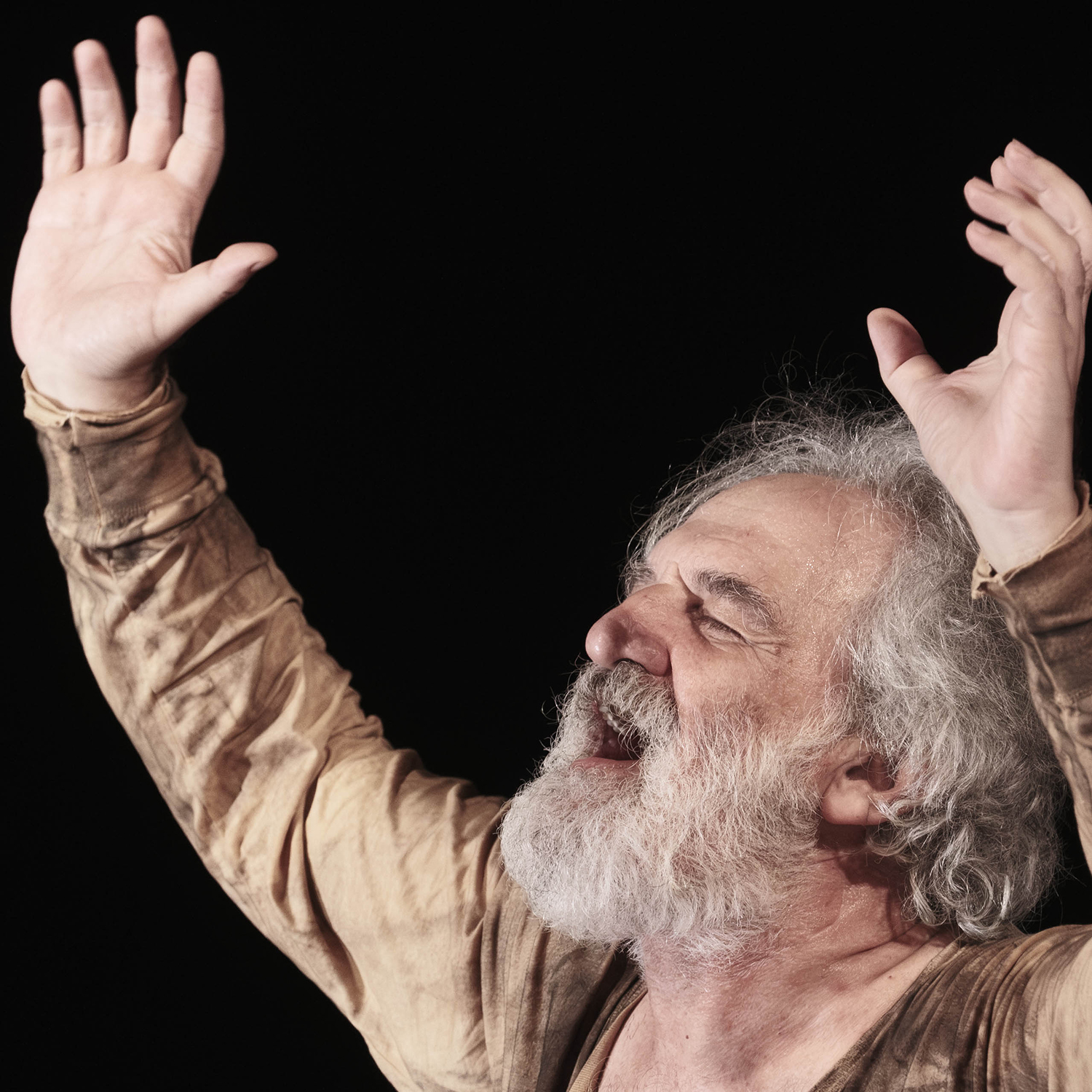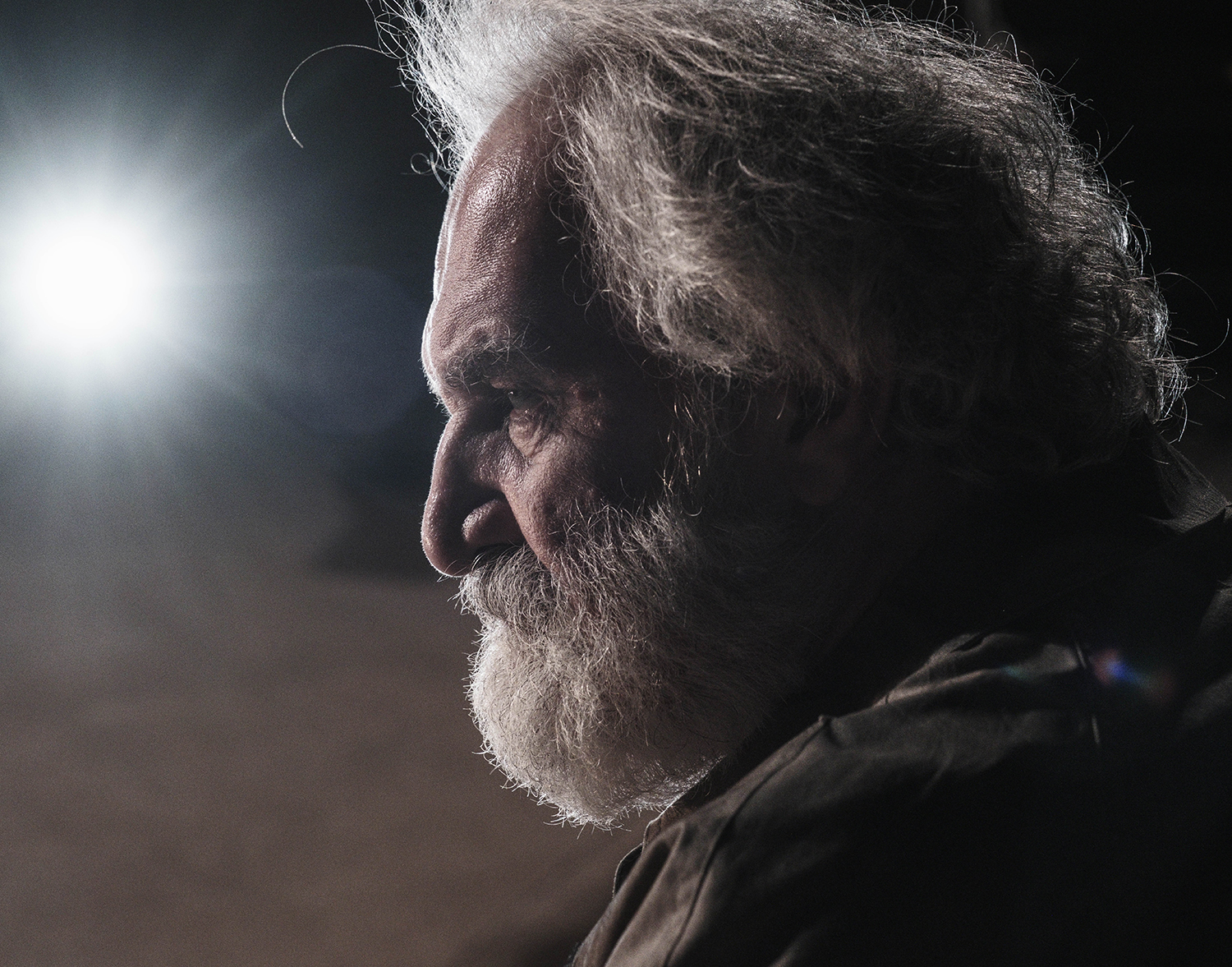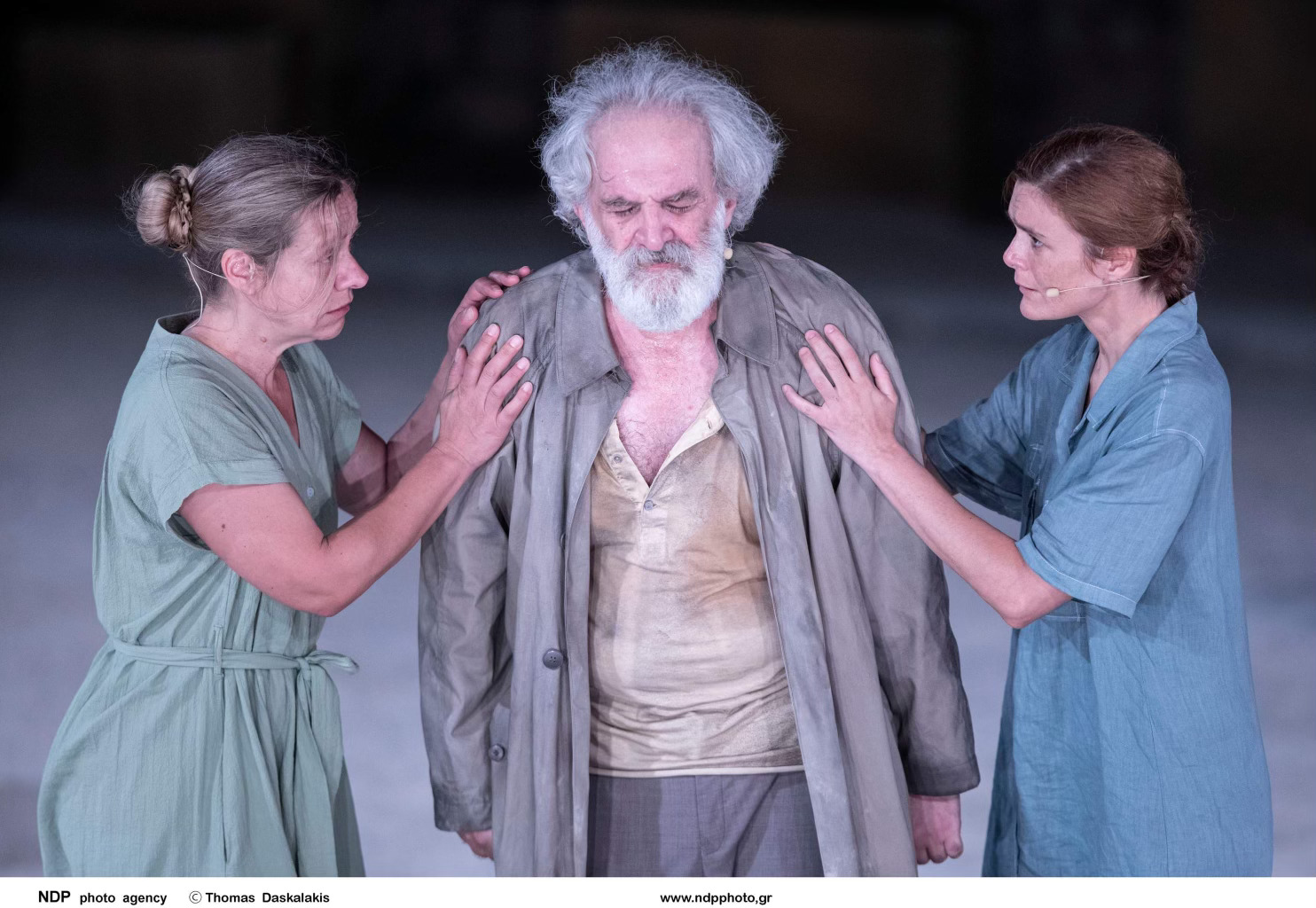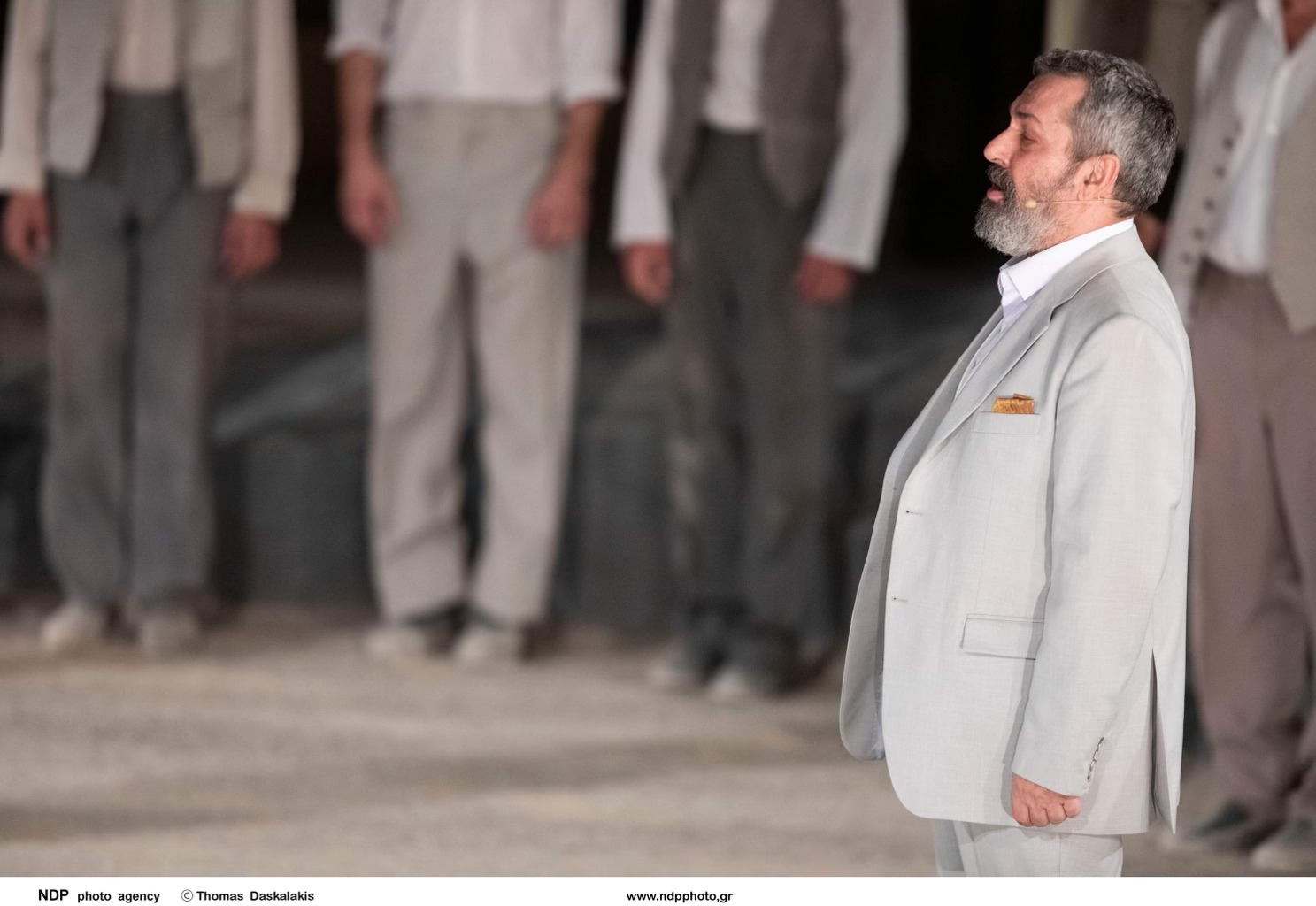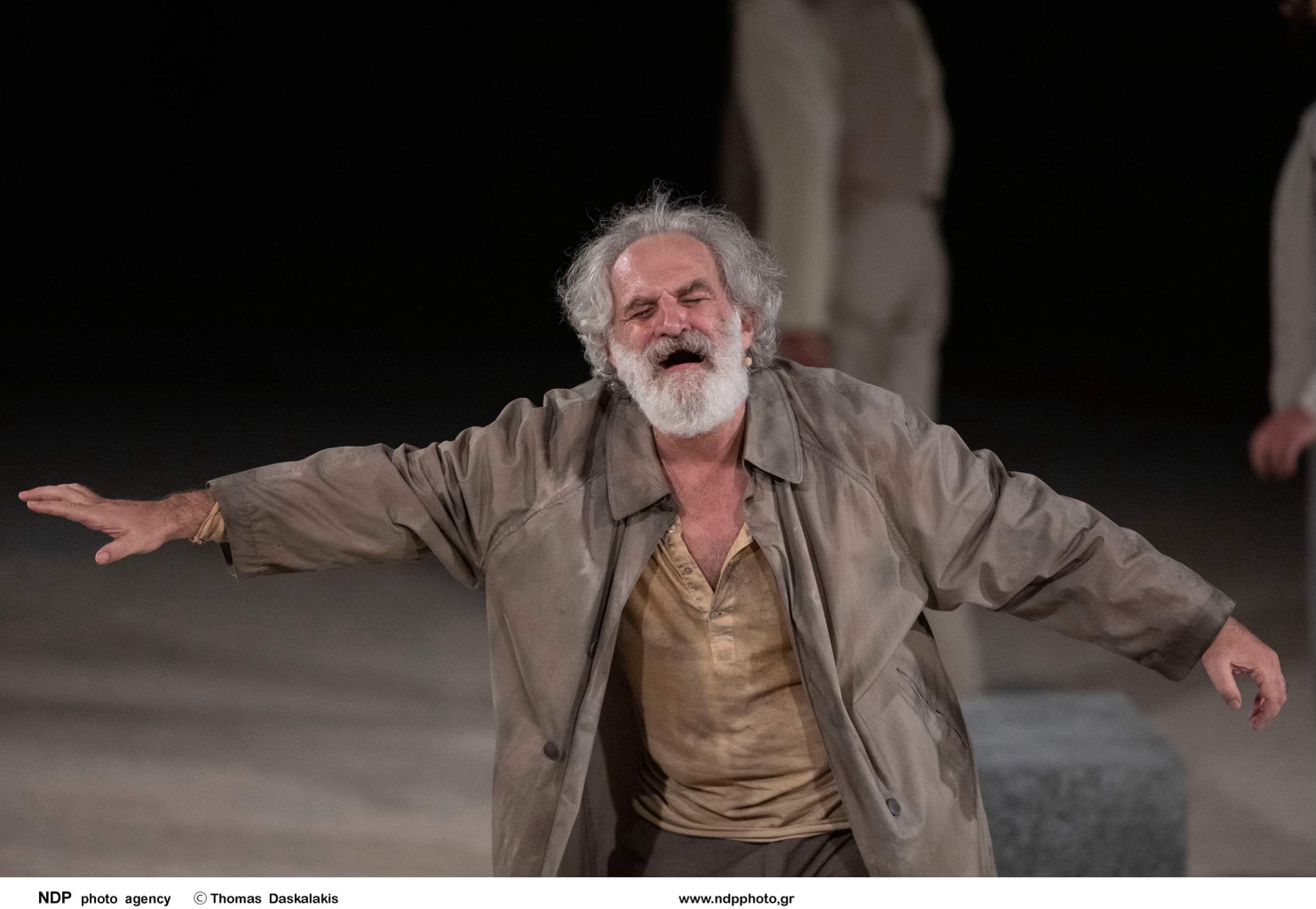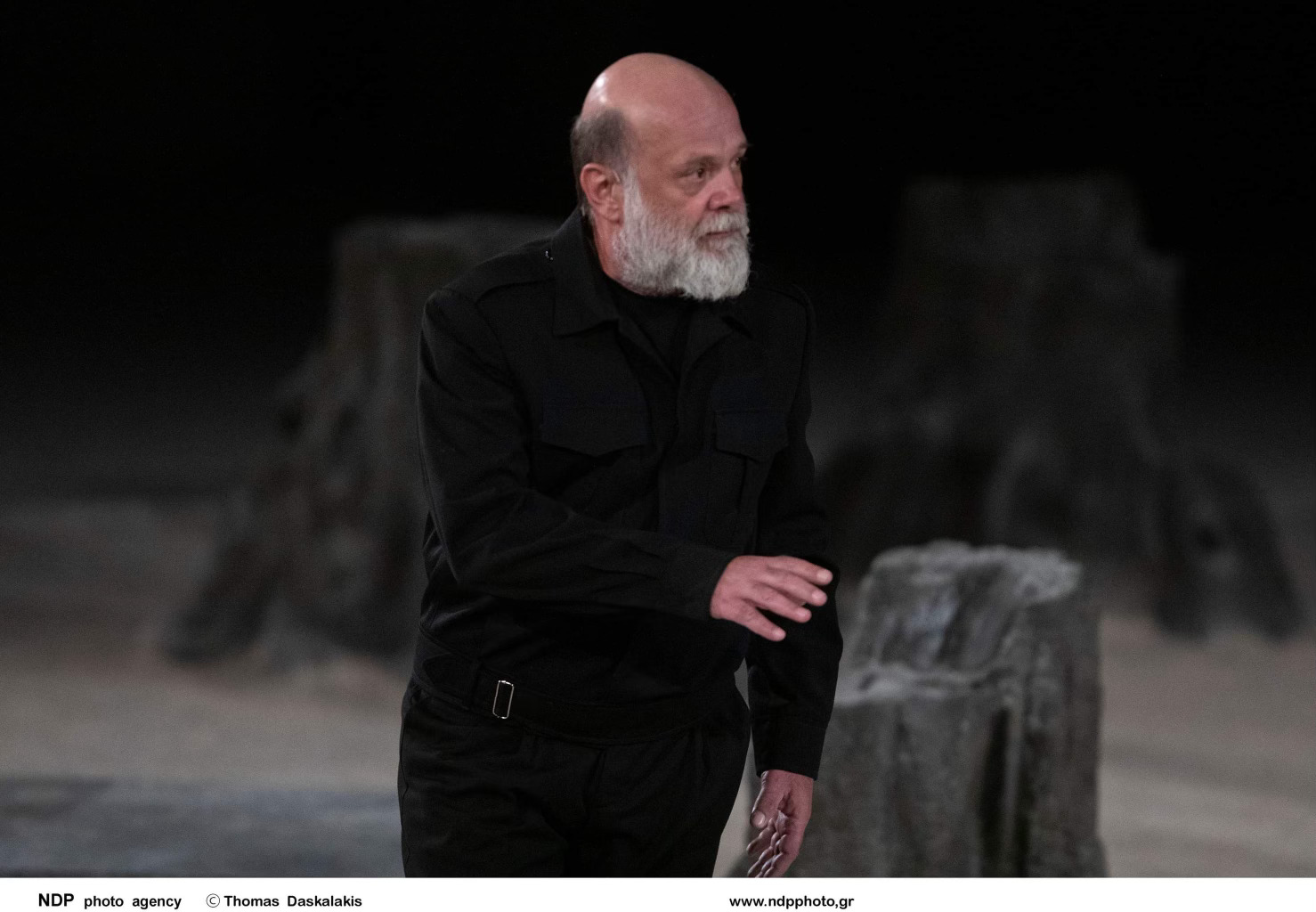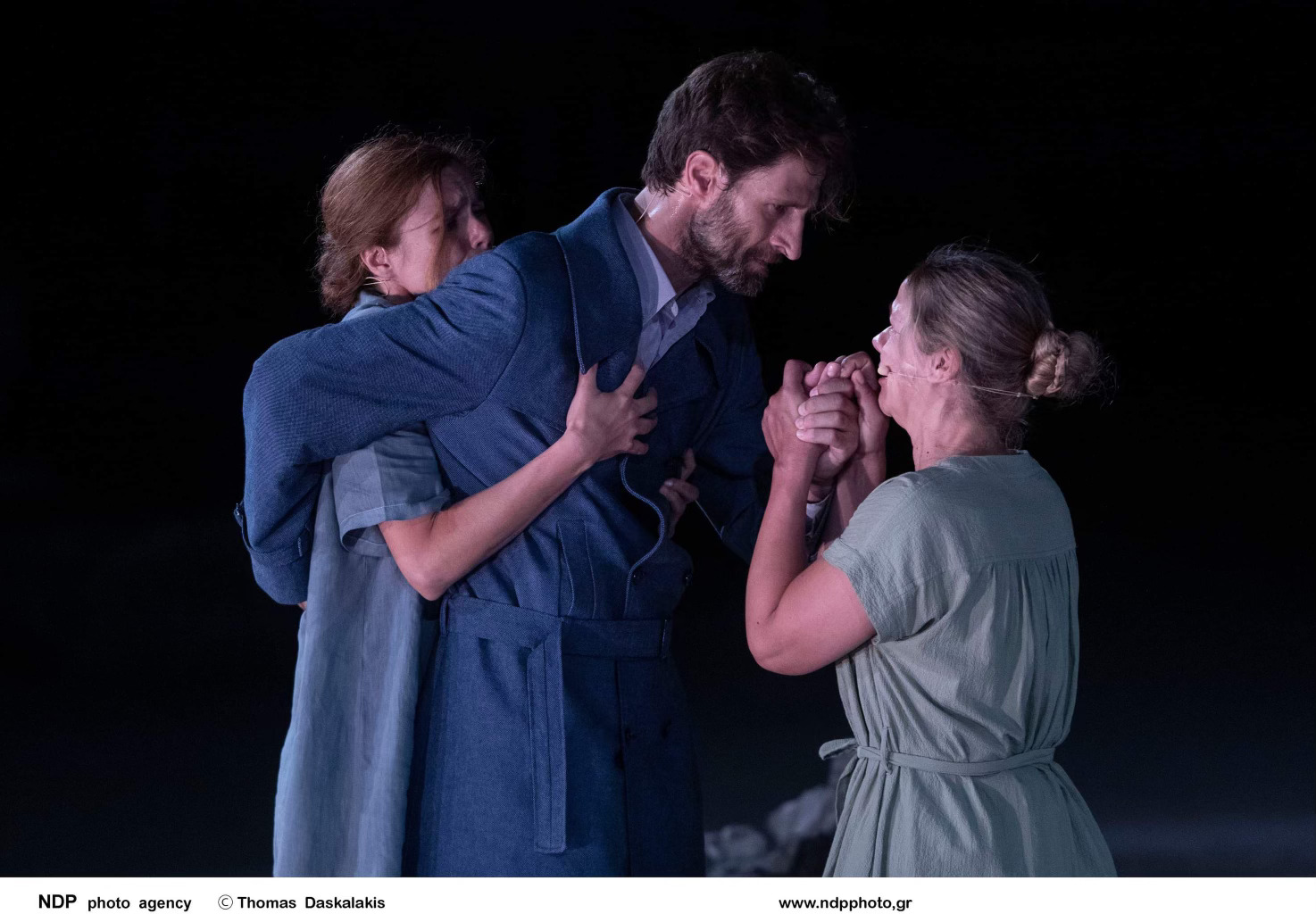Giorgos Skevas
Oedipus at Colonus
by Sophocles
“Light, angelic and black, / laughter of waves on the sea’s highways / tear-stained laughter, the old suppliant sees you / as he moves to cross the invisible fields / light mirrored in his blood, / the blood that gave birth to Eteocles and Polynices” (trans. E. Keeley). The “angelic” and “black light” that the blind Oedipus, the old suppliant, “sees”, as George Seferis writes in his poem “Thrush”, stands for both his devastation and his vindication, his unsure passage to this other place, the invisible fields of the Eumenides’ grove, which shall welcome and devour him.
This performance brings to the fore the ambiguous, pending finale of a character marked by fate. How can this oscillation between justice and injustice, acceptance and refusal of one’s fate, be enacted on stage? Sophocles’ language, the words uttered by his characters, Oedipus, Antigone, Ismene, Polynices, Creon, do not invite a definitive separation of good from evil, the sacred from the blasphemous. Through the bodies’ music, this language becomes an eternal place, the eternal oracle. Giorgos Skevas’ production seeks to unleash this language and its deeply poetic, prophetic power.
Related Events
Ancient Theatre of Epidaurus
- 04/08 until 05/08/2023 at 21:00
all events
Opera | Theatre | Dance | Premiere | Greek Debut
all venues

